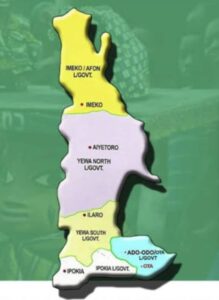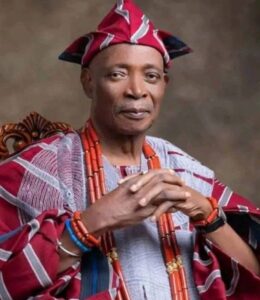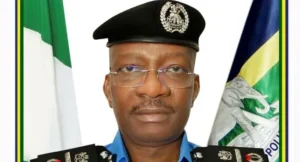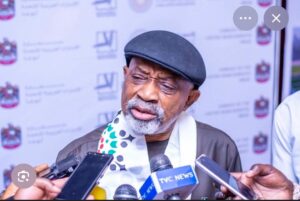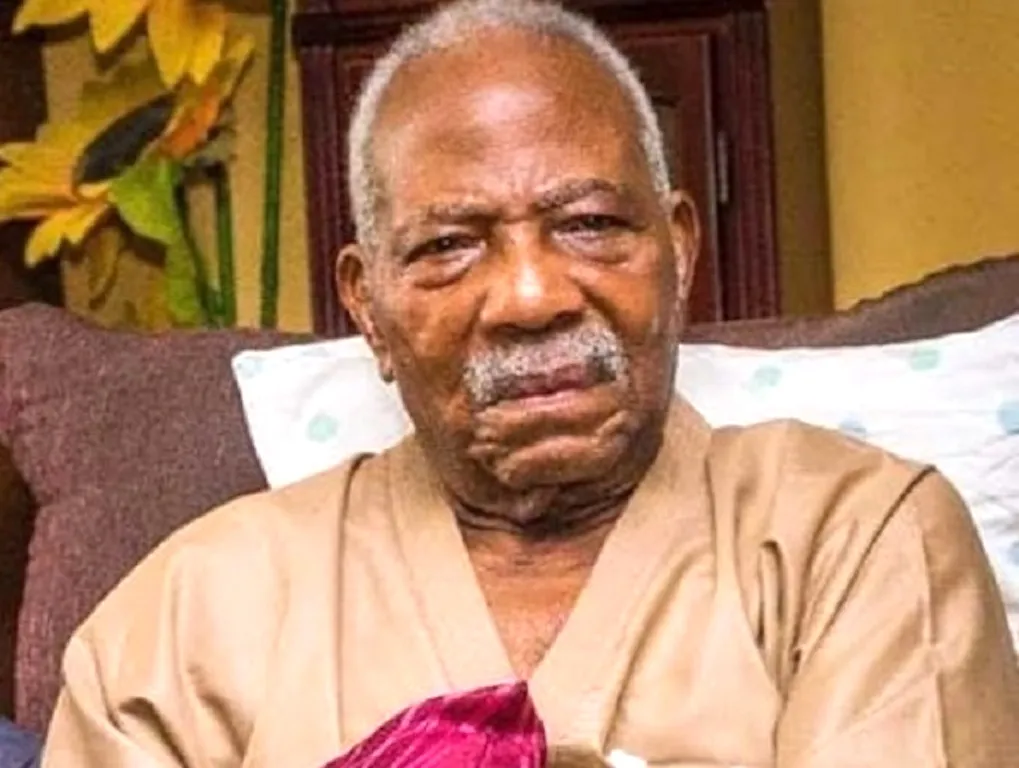
Chief R. F. Fasoranti’s exceptionalism, by Prof Ladipo Adamolekun
PREAMBLE
I consider it a singular honour to deliver the Keynote Address at this event organised to celebrate Chief Fasoranti’s 99th birthday, about nine years after serving as the chairman of the lecture to celebrate his milestone 90th birthday.
I thank the organizers (University of Ibadan Alumni Association, Ondo State Branch) for accepting the specific title of my Address, CHIEF RF FASORANTI’S EXCEPTIONALISM, which will cover some of the themes of the broad title of today’s Public Service Lecture: “Wanted: A Strong and United Yoruba Race as Panacea for Reviving Vanishing Yoruba Values and Culture.”
Given the widely-acknowledged humility of self-effacing Chief Fasoranti, I know that he would strongly object to being called “exceptional”. Therefore, I wish to plead with him that I settled on the title out of conviction. Given his record in political praxis as a CONVICTION politician – a characteristic that is displayed in the pages devoted to his years in politics in his autobiography, My Life. My Legacy (2020) – I am confident that he will allow me to share with him and the audience the justification for my conviction. And the following is evidence that I am in the good company of the organizers of today’s event: “The [Today’s] event commemorates the 99th birthday of the elder statesman, a distinguished alumnus of the University of Ibadan… a man celebrated for his exceptional (bold and italics added) leadership and contribution to society” – extracted from the letter of invitation sent to me by the organizers.
What is exceptionalism? According to Wikipedia, “Exceptionalism is the perception or belief that a species, country, society, institution, movement, individual, or time period is “exceptional” (i.e., unusual or extraordinary). The term carries the implication, whether or not specified, that the referent is superior in some way.” For the purpose of this Address, I will proceed below to justify my conviction that Chief RF Fasoranti has been exceptional in the following three spheres where he has spent his entire working life: education, politics and governmental administration, and leadership. In closing, I will make a proposal for an appropriate establishment to be dedicated to him about one year from today.
EDUCATION
Chief Fasoranti made significant contributions at all the three levels of education – nursery/primary, secondary and tertiary – a teacher at the secondary level, a proprietor at both the nursery/primary and secondary levels, and a supervisory cum guidance role at the tertiary level.
His first teaching position after obtaining a Postgraduate Diploma in Education (PGDE) in England was a six-month stint in Oyemekun Grammar School, Akure. (He had earlier graduated from University College, Ibadan, UCI). Then, he became the pioneer principal of Iju-Itaogbolu Anglican Grammar School (AGS), beginning from January 1957. We learn from his autobiography that at the start of his service, he had conceived his own “vision and philosophy” with these key ingredients: “… instilling discipline, academic excellence… community involvement”. He was principal of AGS for fourteen years before he was transferred (by the Western State Government that had taken over all secondary schools state-wide in 1972) to serve as the principal of three other secondary schools: Baptist High School, Iwo (for about eight months), Olivet Heights High School, Oyo (for about three years), and Christ’s School, Ado-Ekiti (1976 -1978). At the end of two years in Christ’s he chose to proceed on voluntary retirement. He was 52 years old. Significantly, he records the following about his AGS years in his autobiography: “My years in Iju-Itaogbolu were the most creative period in my teaching experiment”.
After about a dozen years as the principal of AGS, he was bestowed a chieftaincy title in Itaogbolu in appreciation of his meritorious service. And in 2021, @95, AGS Alumni Association celebrated him with the dedication of Reuben Fasoranti Chapel it had built – in appreciation of their pioneer principal’s unforgettable contributions to their education. (I am deliberately silent on the import of AGS Alumni’s decision to name a Chapel after a layman – an uncommon practice in these parts – because a commentary on exceptionalism in the religious sphere is outside the areas of my competence! So, I leave the rationale for the Alumni’s decision to the imagination of listeners/readers).
Chief Fasoranti’s abhorrence of the instability of serving as principal of three different secondary schools within six years (post-AGS) was almost certainly a push factor to his becoming an education champion at the nursery/primary education level. He returned to Akure to join his wife in running Omolere Nursery/Primary School they had cofounded in 1967. In 1974, two years after the Government had taken over their primary school, they established Akure High School which was again taken over by the State Government in 1977. Thereafter, Chief Fasoranti established a fully private secondary school in Igoba, near Akure. In memory of his late wife (Frances Adediwura), the co-educational school was named St. Frances Academy.
Finally, at the tertiary education level, Chief Fasoranti served as the first Pro-Chancellor and Chairman, Governing Council of Adekunle Ajasin University, Akungba Akoko. Through his advisory and supervisory role, he contributed significantly to the university’s successful take off. Today, AAUA is the premier tertiary institution in Ondo State. Thus, Chief Fasoranti’s championing of education has traversed all the three levels, and his quality contributions that spanned seven decades and counting, deserve to be acknowledged as exceptional. Yes, it is an unusual accomplishment.
POLITICS AND GOVERNMENTAL ADMINISTRATION
Drawing on my study and observation of Nigerian politics and governmental administration over six decades, I would confidently assert that the common culture in both spheres is CORRUPTION. Chief Fasoranti asserts in his autobiography that based on his first-hand experience as the Commissioner for Finance in Ondo State, 1979 – 1983, the governor under whom he served, MA Ajasin, was incorruptible. Governor Ajasin, for his part, referred to his Commissioner for Finance in his Memoirs and Memories (2003) as follows: “… he was solid in capacity, integrity, dependability, reliability, efficiency, effectiveness and loyalty…” And Strikingly, Chief Fasoranti calls himself the governor’s alter ego, after describing him as incorruptible. These two incorruptible leaders in governmental administration belong to a very small political tribe in this country. A notable example in Nigeria’s political and administrative history is the incorruptible higher civil service of Western Region (led by Simeon Adebo) that successfully delivered impressive development outcomes under the outstanding political leadership of Chief Obafemi Awolowo during the second half of the 1950s. The authoritative source for this assertion is Chief Awolowo himself in his autobiography, Awo (1960:293).
A second rare distinguishing characteristic of Chief Fasoranti’s service in the political sphere is his politics of conviction. The conviction politician disagreed with the Action Group (AG) leader who had approved the candidature of another aspirant that Chief Fasoranti considered unsuitable to contest for the chairmanship of Akure Local Council. He and his supporters registered a new party, Alarm Clock, to sponsor him as its candidate for the same position. He defeated his AG opponent and became the Council chairman. Within a year or so after the remarkable victory, he rejoined the AG of which he had been a card-carrying member since his undergraduate years in UCI.
In marked contrast to the conviction politician who rejoined AG whose ideology and programmes he had embraced for years before he disagreed with the leader on principle, the majority of politicians who have operated at local, state, and national levels since 1999 have demonstrated total lack of conviction and principles. The recent “gale of defections” from the second major party, People’s Democratic Party (PDP), to the ruling All Progressives Party (APC) is the latest evidence of the prominence of Nigerian politicians who lack conviction and principles. The extent to which the country’s party system and the constitutional provisions and existing legal frameworks governing the creation, financing and overall running of parties contribute to the emergence of the prevailing breed of politicians is beyond the scope of this Address. But I would like to mention that today, a party similar to Alarm Clock cannot emerge to contest elections in any part of Nigeria. Furthermore, political independents like myself remain unrecognized in spite of the sensible recommendation for our recognition in the Uwais Commission Report (2008).
Strikingly, Chief Fasoranti has operated steadfastly within the “successor” parties to AG: the Social Democratic Party, SDP (in the aborted Third Republic of the early 1990s), Unity Party of Nigeria, UPN (1978-1983) – his role as Commissioner for Finance under Governor Ajasin during the period (1979-1983) has already been highlighted – Alliance for Democracy (AD) from late 1990s to the early 2000s. Against this backdrop, I would unhesitatingly assert that in the political and governmental administration sphere, incorruptible Chief Fasoranti who is also a conviction and principled politician has been exceptional.
LEADERSHIP
In my Nigeria and I. Getting Politics Right to Make Nigeria Work (2022), I highlighted the following as the desirable leadership attributes of a development-oriented political leader: integrity, intelligence, competence, and vision. Strikingly, all these four leadership attributes are evoked in Chief Fasoranti’s autobiography.
Vision, integrity and incorruptibility are three leadership attributes highlighted by the celebrant in his autobiography. Notably, integrity features prominently in the subtitle of the book: Service with Integrity, Grace and Excellence. He also stresses two others: “I lead by example” and “I am people-oriented”. Attention was drawn earlier to the fact that he had articulated a “vision and philosophy” at the start of his service as the pioneer principal of AGS where he spent fourteen years. Evidence of appreciation for the quality contributions to the educational development of the students who passed through the school under his watch has also been highlighted. His assertion of leading by example and being people-oriented relates to his years as principal of secondary schools (especially his fourteen years in AGS), his party-political leadership roles, his few years’ service as a Commissioner in Ondo State Government, his many years as a community leader, and especially his leadership of Afenifere, the pre-eminent pan-Yoruba socio-cultural organisation, that he has led since 2008. (He was a founding member of Afenifere in 1951, and his predecessors were Chief Obafemi Awolowo, Chief MA Ajasin and Senator Abraham Adesanya. The organisation was established for the protection of the political interests and cultural heritage of Yoruba nation). Today, Chief Fasoranti is “both the Leader of Afenifere… and the Leader of the Yoruba”.
Praise for him as a leader is also provided in the Foreword to his autobiography (by JK Fayemi, a student under his tutelage at Christ’s School. Ado-Ekiti, 1976 – 178); in the Preface (by Basorun Seinde Arogbofa, Life Patron of the organisers of this event and a close associate of Chief Fasoranti from the 1970s to the present); and in the selected 94th birthday tributes by prominent Nigerians (“Songs Across the Board” pp. 177 – 206), including Afenifere leaders, political leaders, traditional rulers and leading professionals (academics, civil servants, lawyers et al). The following selected leadership attributes highlighted in the tributes are unattributed and in no particular order:
– “integrity personified”;
– “a highly principled individual”;
– “an epitome of discipline”;
– “values of competence, courage of conviction, and consistency”’;
– “selfless and self-effacing”;
– “honesty”, “humility”, “modesty”, “simplicity”;
– “He is people-oriented”; and
– “When we celebrate Papa [RF], what we celebrate is the success of leadership by example”.
Given the quasi-unanimity among the persons with varying backgrounds, and many of whom have held/are holding leadership positions, on the above leadership attributes of Chief Fasoranti, he emerges clearly as an exceptional leader.
PERSONAL LIFE: In his personal life, he has faced his own share of tough challenges, including unjust incarceration by Buhari junta; and has borne the loss of two daughters and his “Better Half” – one each in three of his nine decades on the planet – with fortitude and equanimity, upheld by his strong Christian faith. This should qualify him as a rare breed; and some would simply regard it as another dimension of his exceptionalism.
CLOSING
I would like to seize the opportunity of this event organised to celebrate Chief Fasoranti @99 to float a suggestion that will both acknowledge his many years of service as Leader of Afenifere and his life-long passion for education. I wish to propose the establishment of ILE IJIRO AFENIFERE (AFENIFERE THINK TANK) here in Akure. And the building should be dedicated to RF FASORANT, AN EXCEPTIONAL LEADER AND A FOREMOST EDUCATION CHAMPION.
As recorded in my Diary entry below, I first thought about the desirability of an Afenifere Think Tank for promoting the ideas and activities of Afenifere about two decades ago.
“Ile Ijiro Afenifere (Afenifere Think Tank). Following discussion of the idea with Kole [late Professor Kole Omotoso] during a visit to me in Washington DC), I’ll proceed to prepare a Concept Note to be shared with selected players in the next few months”.
– Diary entry, July 22, 2003.
Because Afenifere and Alliance for Democracy (AD) were intertwined when I returned to Nigeria as a retiree in late 2004, I abandoned the idea of preparing a Concept Note on the proposal. Although AD was a political party descended from Action Group (AG) of which I was a card-carrying member for about five years in the 1960s, I had formally moved on from partisan political allegiance to becoming a political independent. I am confident that promoters and sponsors of the proposed Ile Ijiro (Think Tank) will emerge; and a few of them might be in this audience!
May the dedication of Ile Ijiro Afenifere feature as a key event during Chief RF Fasoranti’s centenary celebrations.
(A Keynote Address delivered by Professor Ladipo Adamolekun at the event organised to celebrate Chief RF Fasoranti’s 99th birthday).
Open letter to Minister of Interior – Hon Tunji-Ojo
Nelson Akerele replaces Funmilayo Omo as Enterprise Life Nigeria MD
Lagos leads in fiscal growth with ₦1.3 trillion IGR in 2024
Share your story or advertise with us: Whatsapp: +2348033202396 Email: sentinelnewsng@gmail.com



